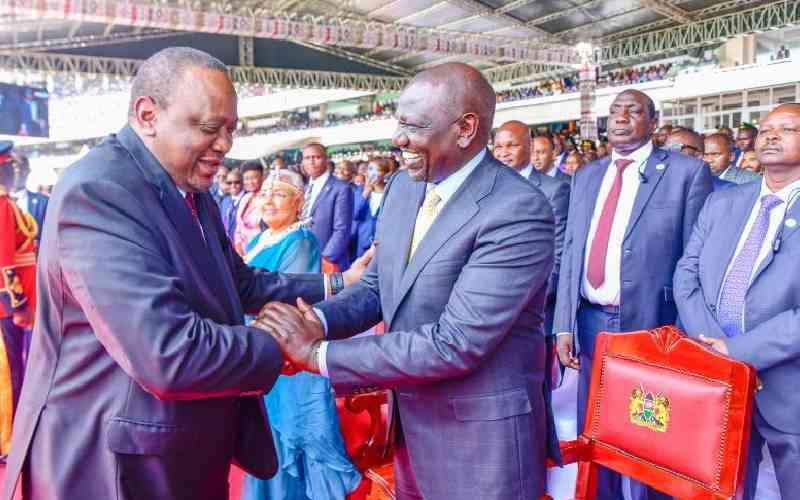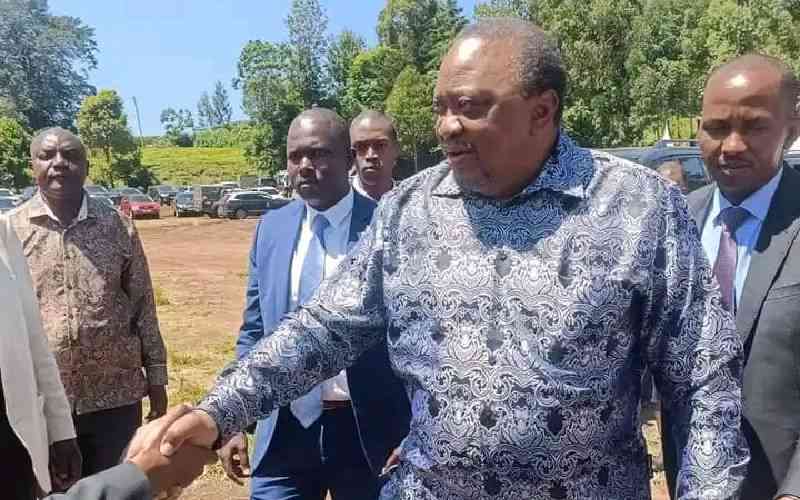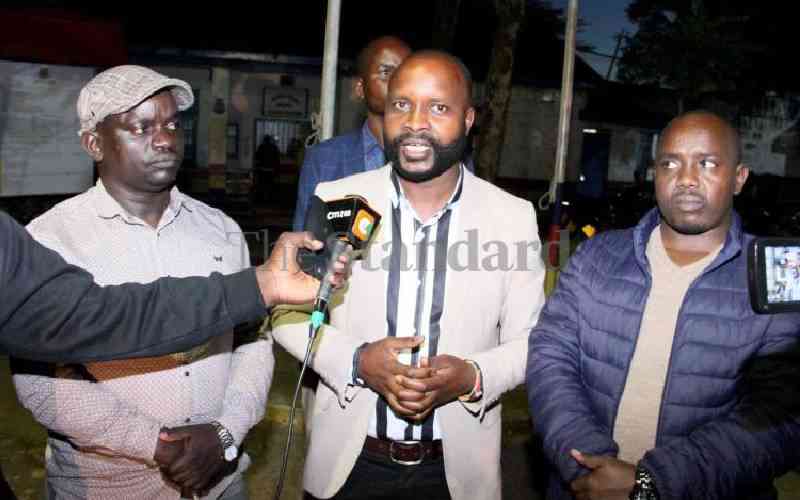By FELIX OLICK
THE HAGUE: Former International Criminal Court (ICC) Prosecutor Luis Moreno-Ocampo has distanced himself from earlier claims attributed to him that Western diplomats fixed President Uhuru Kenyatta and his Deputy William Ruto at The Hague.
On Wednesday this week, Ocampo pointed out that his earlier interview on the twin Kenyan cases had been twisted ‘by certain outlets in the Kenyan media’ to imply that the two leaders were fixed regarding the bloodletting that followed the bungled 2007 presidential polls.
“Certain outlets in the Kenyan media have misused my words to falsely allege that during the course of that interview, I admitted that the current Kenya cases at the ICC were “fixed”.
“Unfortunately, the people of Kenya have been plied with a steady stream of inaccurate and inflammatory media reports, asserting that I confessed that Western diplomats “used the ICC to subvert the rights of Kenyans to choose their own leaders democratically. Nothing could be further from the truth,” said the Argentine lawyer.
In an interview with Radio Netherlands Worldwide in January this year, Ocampo admitted that some diplomats, whom he did not name, exerted pressure on him to ensure President Uhuru and Ruto were not on the ballot at the elections.
“There were some diplomats asking me to do something more to prevent Mr Kenyatta or Mr Ruto to run in the elections. I said it is not my job. Judges in Kenya should do that. And if they authorise them to run, people will vote. And if people vote for them, we have nothing to say,” Ocampo said during the interview.
International politics
The remarks triggered a storm with Jubilee allied legislators and a section of lawyers claiming Ocampo was legitimising claims that the cases had been infiltrated by international politics.
In his response this week, Ocampo clarified that the decision he took to charge the suspects in the Kenyan cases was based solely on the evidence available at that time.
“I followed the evidence and in strict conformity with that of the Rome Statute legal framework,” he stated.
However, in an apparent reference to the current challenges facing his successor Fatou Bensouda in prosecuting President Uhuru, Ocampo insisted that evidence in criminal cases are likely to change.
“Evidence can change; for example, key witnesses can be threatened and as a result, they may withdraw their willingness to cooperate with the ICC process,” he said.
“Several other factors may also erode the evidence that a prosecutor collects during their investigation. These are complex issues that the current Prosecutor must grapple with. My term as the ICC Prosecutor ended in June 2012, and I am no longer involved in these cases,” Ocampo said.
On Monday this week, ICC judges rescheduled the start of the President Uhuru’s trial to October 7.
Stay informed. Subscribe to our newsletter
The new date is intended to allow the Kenyan Government time to comply with its obligations to cooperate with a prosecution request for the President’s financial records, which it believes may bolster its case.
But as they delivered the ruling, the three-judge bench criticised the prosecution’s investigations in the case with regard to the credibility of its witnesses and evidence.
In a bare knuckle attack on Bensouda’s office, the three-judge bench said it had serious concerns regarding the thoroughness of the Prosecution investigations.
“The Chamber has serious concerns regarding the timeliness and thoroughness of Prosecution investigations in this case including – in accordance with its responsibilities under Article 54 (l) (a) of the Statute – verifying the credibility and reliability of the evidence upon which it intended to rely at trial,” said the judges.
Judges Kuniko Ozani, Robert Fremr and Geoffrey Henderson criticised Bensouda for failing to review the consistency and reliability of its witnesses.
“The Prosecution was, from an early stage of the proceedings, on notice regarding potentially serious challenges to the credibility of certain of its key witnesses,” they noted.
 The Standard Group Plc is a
multi-media organization with investments in media platforms spanning newspaper
print operations, television, radio broadcasting, digital and online services. The
Standard Group is recognized as a leading multi-media house in Kenya with a key
influence in matters of national and international interest.
The Standard Group Plc is a
multi-media organization with investments in media platforms spanning newspaper
print operations, television, radio broadcasting, digital and online services. The
Standard Group is recognized as a leading multi-media house in Kenya with a key
influence in matters of national and international interest.
 The Standard Group Plc is a
multi-media organization with investments in media platforms spanning newspaper
print operations, television, radio broadcasting, digital and online services. The
Standard Group is recognized as a leading multi-media house in Kenya with a key
influence in matters of national and international interest.
The Standard Group Plc is a
multi-media organization with investments in media platforms spanning newspaper
print operations, television, radio broadcasting, digital and online services. The
Standard Group is recognized as a leading multi-media house in Kenya with a key
influence in matters of national and international interest.








